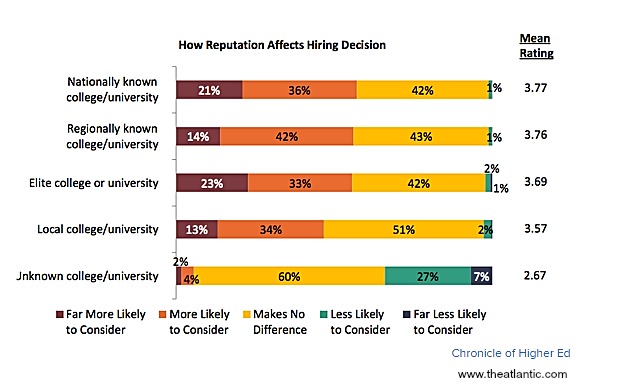
7 Myths and Facts of Going Back to School as a Single Mom
The idea of heading back to school while working, and single momming may seem like a just a pipe dream. I mean, seriously. You are already completely swamped trying to keep up with everything that is going on in your life.
Sure, the idea of earning the next degree is appealing. Think about it. How would your life change if you had an associate’s, a bachelor’s, a master’s … or even a Ph.D?
Would you change jobs?
Buy a new house?
Get a promotion?
Show your kids that an outstanding kick ass mama gets the job done … and they can too!?
Awesome!
Now that you are psyched and ready to go … your mind may be racing about myths you’ve heard, and those myths may be settling in your head, creating discouraging thoughts.
Well, my friend, it’s time to bust those Myths!
MYTH: You must graduate from the best school in order to succeed.
FACT: You don’t need to go to the “best” school.
Here’s the deal. You get to be called the best school if the best high school students pick you.
Yep.
If the kids with the highest grades, the teenagers with the most awards, and the winningest athletes choose you Voilà! Now you are the best school.
What did the best school do to get that title?
Nothing.
Who chooses a school is, in my opinion, not a good indication of how good that college is.
For whatever reason, colleges have been able to get away with this, and we all buy into it. It’s like they put out a sign that says, “The most valedictorians picked us. We are the best.”
And we all say..."ooh...ahh...that is impressive."
Purchasing an education is no different than purchasing anything else. As a buyer, you need to do your homework, and find the best school … for you.
MYTH: You must attend an expensive school to get a well-paying job.
FACT: Your choice of school doesn’t determine your salary.
When comparing the salaries of college graduates from state colleges with those from more prestigious colleges, the differences are negligible.
Graduates from all colleges are making six figures and well above.
Your earning power is more impacted by other factors, such as field of study, your strategic career plan, your personal drive and determination,your experience, how well you interview, how well you negotiate, and what you offer to the company.
MYTH: Your school’s reputation is the most important factor.
FACT: Employers consider much more than your school’s reputation.

As you can see, the school’s ranking as a “best school” does not have a significant impact when it comes time to hire someone to do a job.
(Seriously, why would it?)
I can tell you that I have hired many, many, many people to do many different jobs, and where they got their degree has never mattered to me.
What was important to me were the skills, abilities, and drive of the applicant. A swanky degree without the skills I need isn’t going to result in a job offer.
I do, however, care how someone paid for school. Successfully managing work, school, and kids, on your dime, demonstrates a great work ethic, commitment to goals, and a rare ability to manage a diverse workload. These are a highly marketable and rare skills.
MYTH #4: You must get a four-year degree in order to get a decent job.
FACT: A two-year associate’s degree, or formal certifications can get you a very good job.
If you are at the very beginning of your college education consider earning an associate’s degree first, and then apply those 2 years toward your bachelor’s degree.
Many colleges offer two-plus-two programs. In a two-plus-two program, you attend a less expensive community college for two years while studying the core classes that meet your basic curriculum requirements. Upon completion of those two years, you have earned both an associate’s degree and the first two years of your bachelor’s degree, typically with a more flexible schedule and at a lower cost.
Utilize your associate’s degree to get a new job and increase your income while you finish your bachelor's degree.
Visit http://createacareer.org/associate-degree-jobs to the which jobs you qualify for with an associate's degree.
MYTH: My degree will cost me the same, no matter what I do.
FACT: Knowing your options and planning ahead will save you time and money.
College is definitely a “buyer beware” environment. There are many pitfalls along the way, and taking—and paying— for more classes than you need is just one of them.
Pay attention to the number of classes required when you enroll into a program, and check your status regularly throughout your college career to save you time, money, and headaches.
For example, master’s degree programs vary widely. You can get a master’s degree in three years; you can also get a master’s degree in a year and a half. Knowledge is definitely power here.
If you have completed some college coursework and just need to finish your degree, look for an accelerated degree completion program. In these programs, you complete the coursework one course at a time, usually three hours per week over a six-week period.
This is super fast way to complete the courses you need.
MYTH: You can’t go to college, work, and successfully raise your kids, all at the same time.
FACT: By implementing a few tools, including your Single Mom Master Schedule™, you can successfully manage all the moving pieces of work, school, and kids.

Managing work, school, and kids is serious business. To be successful you must have a well thought out, solid plan that is easy to adjust.
When you create a plan that is built around your priorities, your kids needs, and your parenting responsibilities, you are assured success both as a student, and as a parent.
If you’re like me, living your life by a calendar is not particularly exciting. But when you have a ton to do, a master schedule is a necessity. Done correctly, your master schedule won’t squeeze you, but will support, and move with you as you travel the simultaneous paths of school and parenting.
MYTH: Going full-time to college is always the preferred choice.
FACT: For many people, part-time is a better fit than full-time.
Obviously, the more classes you take, the faster you will get finished. However, you want to be successful at school, and you want to be a good parent, so a slower pace may be your best option.
Taking one or two classes per session may be far easier and more economical than taking three or four classes, getting overwhelmed, and dropping them halfway through the semester.
You don’t always get a refund if you drop a class, or if you stay in the class and fail. In both situations you will have wasted your money, won’t have earned any credits, and if the class is required for your degree, you’ll need to take it again.
Slow and steady might be the best pace for your education race.














